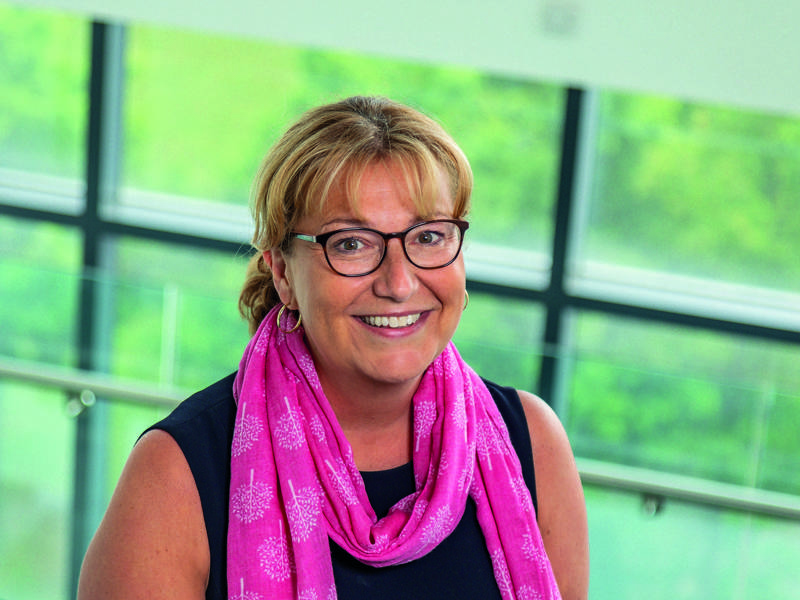Katy's blog - choice matters
PUBLISHED 24-04-2024

With GCSEs rapidly approaching, Principal Katy Quinn talks about the importance of choice, the love of learning and the trials and tribulations of revision time for parents and carers.
Choice, so much choice! It feels like life used to be so much simpler.
Families have already been through the process of making those difficult decisions around GCSE options and before we can blink the important summer exam season is upon us. I expect for those of you with children in year 11, you are now facing the trials and tribulations of preparing for exams and all the anxiety that can bring.
The big questions are now starting to surface. What happens next? What happens after the safety and security of school? What if your child doesn’t get the results they wanted? What does the future hold?
In this blog, I’d like to explore why choice is so important and what we can do to help prevent getting bogged down by the sheer number of alternatives available.
But first let’s talk a little bit about what we can do to lessen the pain of the dreaded exams.
It's not just about academic intelligence
Every child is different of course, at City of Portsmouth College we understand and celebrate that. It’s not just about academic intelligence. Applied, practical intelligence is just as important.
Whilst getting a good set of exam results is important, they are not the be all and end all. Increasingly, employers don’t just take grades into account, they also look out for attributes like creativity and adaptability, good work attitudes, transferable skills and well-rounded individuals at ease with customers and colleagues alike.
That said, here are a few hints and tips which might help your child prepare for their GCSEs.
Take an active and genuine interest: in the hustle and bustle of modern lives, it’s often hard to find the time but just a few minutes a day of talking to your teenager about what they’re revising – and praising them for their efforts – can really pay dividends in fostering and maintaining a healthy parent/child relationship. You never know, you may learn stuff too!
Try to make sure your home offers a quiet and calm environment in which to study: keep distractions and interruptions to a minimum and discourage the use of TV, loud music and social media if you can (tricky we know).
Encourage regular breaks: never-ending revision just piles on the stress and there’s only so much young (and older) brains can take in. It can really help to step away for a while and do something they love that makes them happy.
Provide good food: we all know teenagers can have voracious appetites.
Be flexible and realistic in your expectations: try to remember that, just like the rest of us, teenagers have good and bad days. There are times they’ll struggle to get out of bed, some are more productive in the mornings, some later in the day. Embrace the good days and don’t let the bad days get them down.
Work with the lecturers: talk to them about your child’s strengths and weaknesses, what they need to do and how you can help. You’ll find the teachers will be more than happy to suggest the most effective revision tips and tricks.
Further Education should be the first choice
Here’s where we come back to choice and how we can help to guide you through the myriad of options available.
Psychologist Barry Schwartz argues that freedom of choice leads people to feel powerless and frustrated because choosing one among many other options means giving up on the rest of the opportunities out there.
That’s not how it works in further education.
There is a place for the traditional academic route. If you want to be a rocket scientist or a brain surgeon, of course university is the way.
But plasterers, engineers and health care professionals are every bit as important and valued in today’s society.
Further Education shouldn’t be seen as a second choice, I strongly believe it should be the first choice for school leavers or adults wanting career progression or even a change of career.
Visit colleges in your area, talk to students, lecturers and the amazing support teams who are mines of useful information on everything from careers pathways to bursaries.
All the colleges have regular open events, we’d urge you to go along, take a good look around and find the college and course that’s right for you or your child.
Apart from the convenience of location, you might want to consider the range of courses, teaching styles, how assessments are carried out, the culture of the college and the learning environment.
Choice is everything
At City of Portsmouth College, we offer hundreds of courses at our four campuses: Arundel, Highbury, North Harbour and Sixth Form.
Students can choose from academic and applied courses, vocational and technical; we offer A Levels, T Levels, vocational diplomas, apprenticeships or higher education qualifications.
Our expert careers team will be happy to talk to you and your child about the possibilities.
If GCSE results fall short of or exceed expectations don’t worry, we’re here to help give you and your child all the guidance you need to make fully-informed decisions about next steps.
It’s all about doing what you love and loving what you do. I moved into teaching when I was 26 years old – and I haven’t left since.
After more than 25 years, I still get a buzz from helping students find their brilliance and blossom into confident and capable young adults.
What’s more, it’s every bit as satisfying seeing our more mature students getting a new lease of life from our range of professional and leisure courses.
As the courses on offer continue to evolve and expand, I remain passionate about changing lives through education – inspiring belief, realising dreams and taking action.
Further education provides choice like never before and choice is everything, it represents true independence and freedom.








